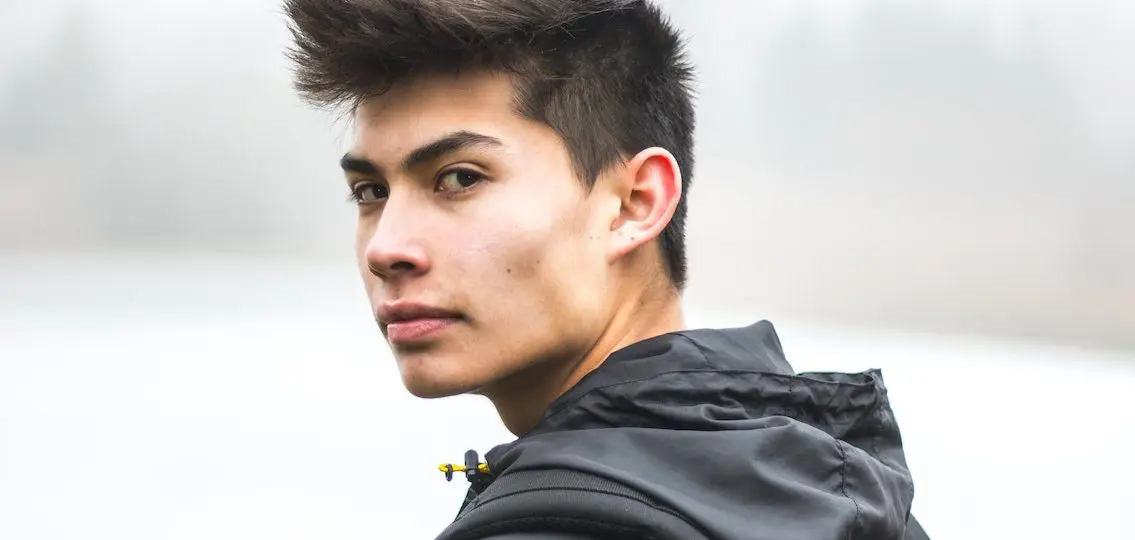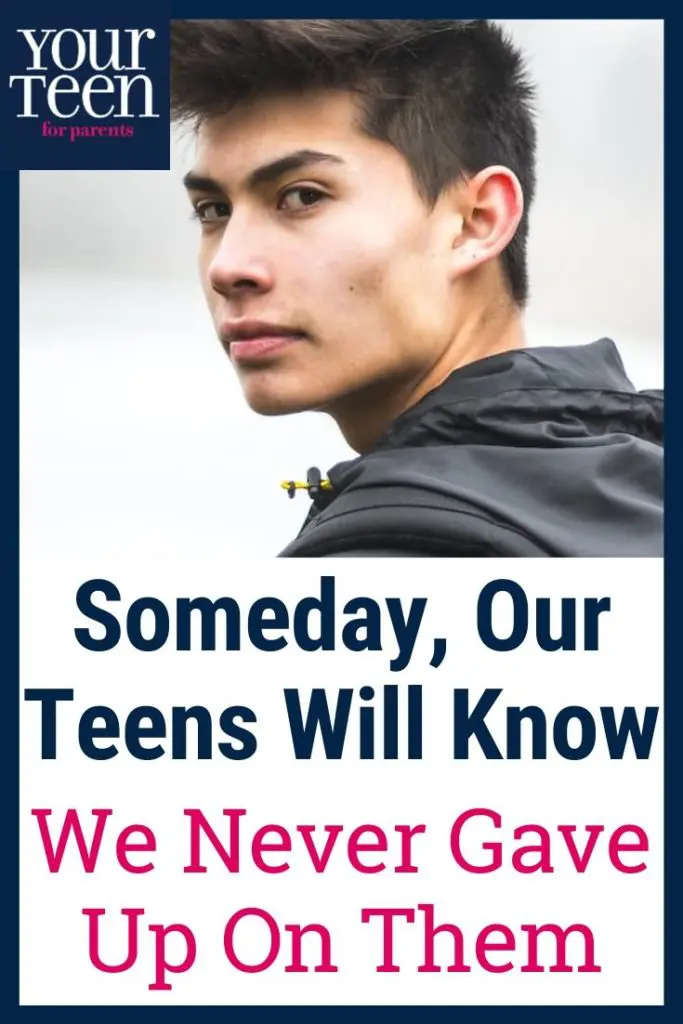I wasn’t around much during the years my kid brother was bashing in his bedroom door with a hammer during a fit of teen angst and anger and then covering the hole up with a poster. At the time, I was off to college and only heard stories like this afterwards from my younger sister.
I’m borrowing from my brother’s story partly because it’s what big sisters do, but mostly because I think it offers hope for parents in the teen trenches today.
Besides the door-bashing incident, there was the hide-the-car-and-sneak-off-to-his-girlfriend’s incident. And the buy-a-motorcycle-with-his-graduation-money incident. He was expressly told not to do this by my parents. That’s why when he came roaring up the driveway on it, my younger sister and I decided it was a really good time to go to the mall.
My brother was also the naturally smart student who could beat his studious sisters any day on a standardized test but slid his way through classes he didn’t care about, which were many.
My parents had to love him through all this. By their own admission, they didn’t know what they were doing. They had to figure it out as they went along. They had to hold onto hope and parent for a day they had no real way of knowing for sure would ever come.
This is what we do as parents. We love today for a future we hope we’ll get to live with our kids.
This doesn’t mean we don’t set boundaries. It doesn’t mean we look the other way when our kids treat us with contempt or disrespect. It doesn’t mean our still-dependent kids aren’t expected to meet certain expectations for behavior. And it doesn’t mean we don’t hold our kids accountable for mistakes and bad decisions and outright disobedience. It doesn’t mean we save our teens from the appropriate consequences of their actions.
But it does mean that no matter what, we hold onto hope for what can be even when the reality of what is makes that hope seem ludicrous.
It does mean that sometimes we say the hard things that have to be said. But other times, we bite our tongues to keep from saying hurtful things that don’t have to be said.
It does mean recognizing the difference between fighting battles that need to be fought and fighting every battle that possibly could be fought.
It does mean we find ways to communicate to our big kids, “I don’t always love what you do. But I always love you.”
On the other side of my brother’s tumultuous teen years, he wrote my parents a letter. “Thanks for never giving up on me.”
The slacker student became the engineering major who complained when he got an A-. He ended up working for NASCAAR and becoming a beloved and dedicated teacher at a high school tech center.
But so much more than that, the rebellious teen became the adult who recognized what his parents had done for him. He became the loving, devoted father who plans to tell his kids (and who already tells his students), “Don’t do what I did.”
As for the motorcycle, which he had bought with money that had been given to him: he rode it for several years, until the night the phone rang at an hour no parent wants to hear their phone ring, and a woman’s voice on the other end told my mom, “I found your son.” This was, mercifully, followed by, “He’s alive.”
My dad hauled the bike home and my brother never rode it again. My mom hauled my brother home and took care of him. It did not escape his attention that my parents still cared about him and cared for him even when his injuries were the result of doing exactly what they told him not to do.
All over the world, there are adults who know their parents stood by them when they were teenagers. There are grown kids who are successful because their parents believed in them even when they failed.
Your teens and mine can be these people someday. We still have time to prioritize our relationships, to love our teens during and through the hard times, to hold onto hope. Our stories with our children are still being written. And we can add this line to the telling, “My parents never gave up on me.”





